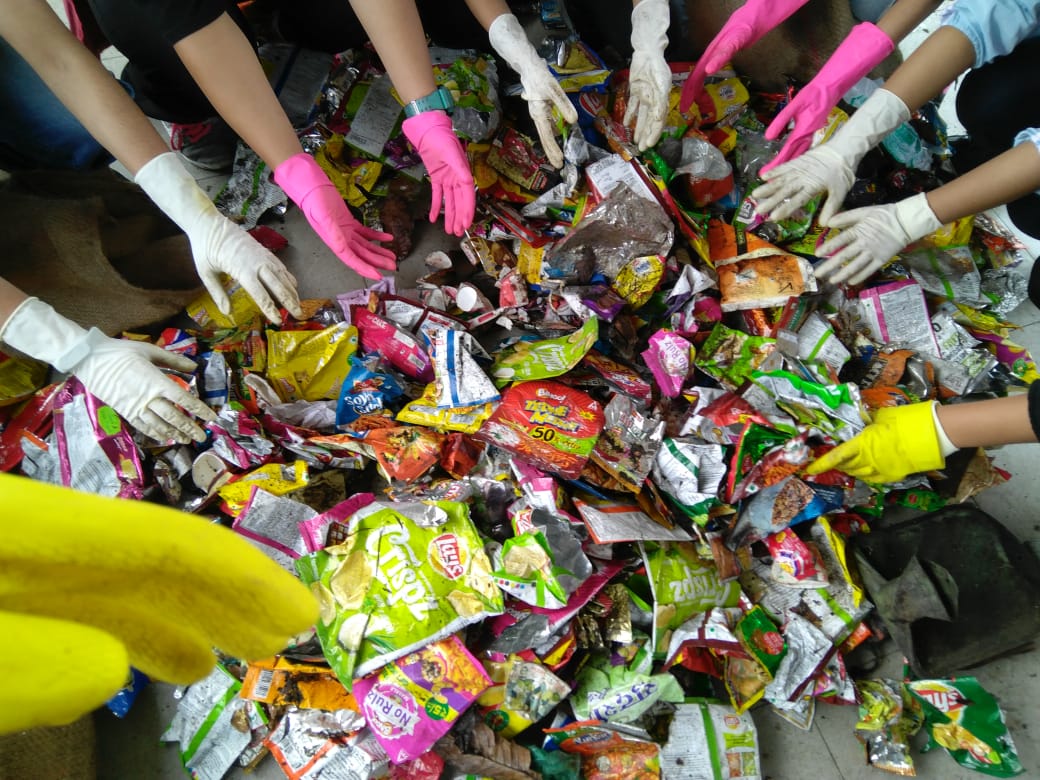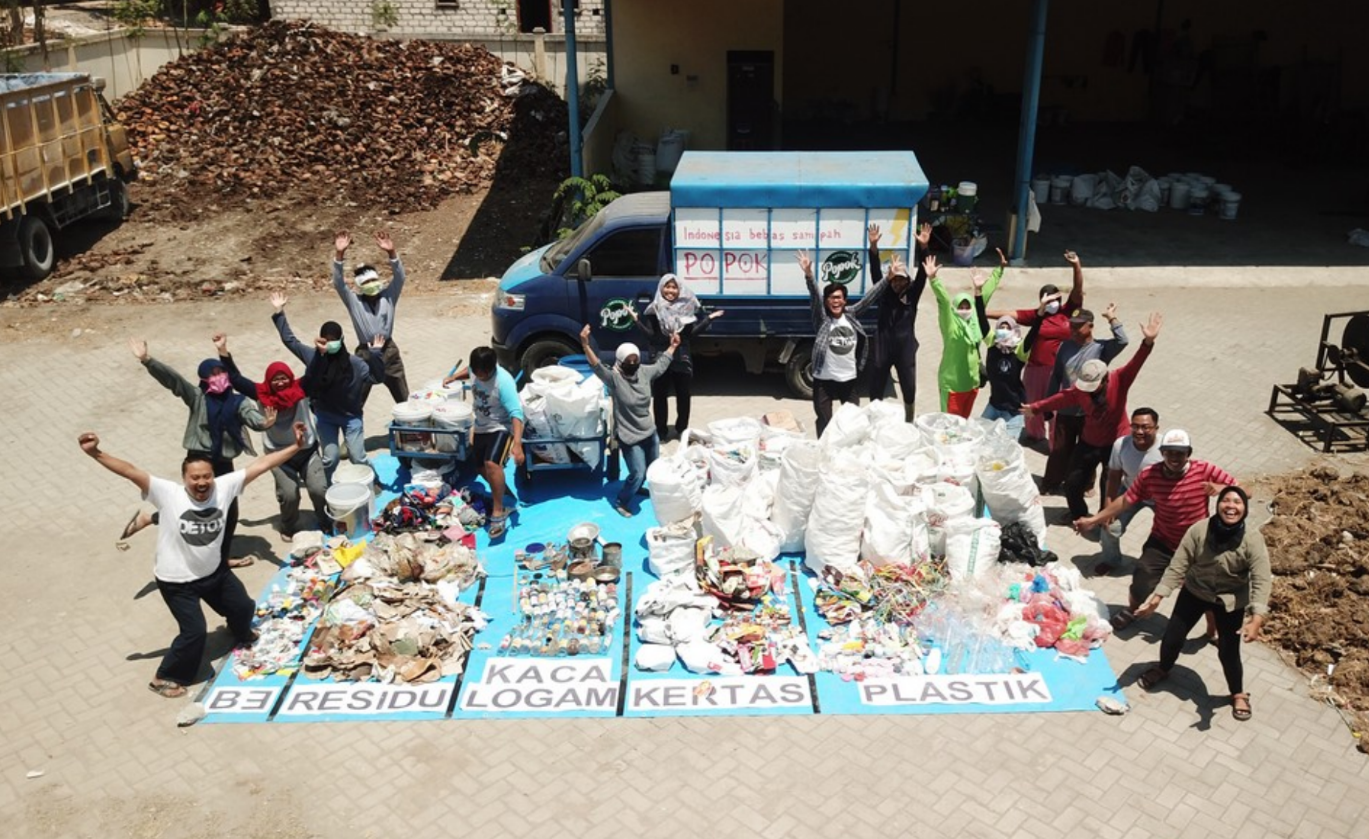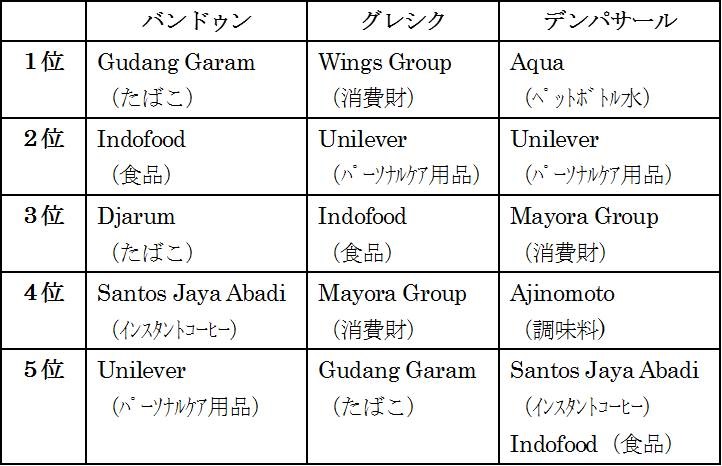Determining Major Contributors to Marine Pollution through a Brand Audit of Post- Consumed Products.
 |
Global Alliance for Incinerator Alternatives (GAIA)Philippines | |
 |
Ruth Anne Larracas | |
 |
http://www.no-burn.org/ | |
 |
US$5000 |
Research Background Final Report (abstract) Others

Brand Audit 1.

Brand Audit 2
Research Background
In 2017, a study published in the Science Advances1
found that of all the plastic created, only 9% has been recycled. This means that the rest has either been burned,
buried or has made its way to the oceans, where it will persist for hundreds of years. clear that recycling as a solution to plastic pollution has been inefficient, and even recycling systems around the world are improved, it will never be enough to solve growing plastic problem.
It is clear that the only real solutions to the growing plastic problem is to reduce plastic
pollution from the source, to compel manufacturers and producers to redesign products be fully recyclable or compostable, and to phase out problematic products and packaging
immediately. However, despite many efforts to engage manufacturers and producers
particularly multinational corporations which are the biggest drivers of single-use disposable products and packaging in developing countries, very little effort is done these companies to be responsible for their pollution.
In 2017, groups in the Philippines conducted the first ever waste assessment and brand
audit in Freedom Island. A WABA aims to identify the companies most responsible putting out problematic products and packaging into the market. These audits were success and picked up by the global media, and resulted in putting a spotlight corporate irresponsibility and inaction for plastic pollution. Since then, many countries
have conducted waste and brand audits with similar successful results.
We aim to replicate these audits in Indonesia, by conducting waste and brand audits four communities in Denpasar (Bali), Medan, Surabaya and Metro Bandung. Indonesia often cited as one of the top sources of plastic waste leakage into the ocean, and important to generate primary data from these communities to inform proper waste
management systems and design necessary policies and programs such as extended
producer responsibility initiatives.
Under this project, community organizations and NGOs from various provinces and cities
in Indonesia will undergo an intensive training workshop on how to properly conduct waste assessment and brand audit (WABA), and conduct WABAs in at least communities.
Results of the WABAs will be disseminated through a press event in Indonesia, through
GAIA's and Break Free from Plastics'online platforms, and through media releases to region and internationally.
1
www.advances.sciencemag.org/content/3/7/e1700782.full - Production, use and of all plastics ever
made.
[Sep. 2018]
Final Report (abstract)
This research is centered around the theme of determining the major contributors to marine pollution through a brand audit of consumed products through a process called Waste Assessment and Brand Audit (WABA). Specifically, this research utilized WABA as a tool to determine the major contributors to marine pollution for the following Indonesian cities: Bandung, Denpasar and Gresik, and were accomplished by the participating local Indonesian NGOs: YPBB, PPLH Bali, and ECOTON, respectively.
The WABA is a process of collecting and analyzing waste to be able to determine the exact amount and the types of waste generated by a target population, and more importantly to identify which brands are responsible for producing a certain percentage of that waste. This activity generally takes 8 days to complete as it requires a weeks worth of (segregated) waste generated by the target population.
The WABAs under this research took place in several cities in Indonesia by their local partner organization; YPBB's WABA in Bandung ran from June 25-July 2, 2019, ECOTON's WABA in Gresik ran from September 16-23, 2019, and PPLH Bali's WABA in Denpasar (Bali) ran from October 3-10, 2019.
By conducting WABAs in these research areas, the implementing organizations identified the corporations and manufacturers responsible for producing the packaging waste that these communities have had to deal with. Identifying these brands in the audit will contribute towards the campaign calling for corporate accountability for the waste being produced, as well as to support the push for these manufacturers to invest in research towards more sustainable product design and alternative delivery/distribution system.
The top 5 brands identified in Bandung were Gudang Garam (cigarettes), Indofood (food products), Djarum (cigarettes), Santos Jaya Abadi (instant coffee), and Unilever (personal care). The top 5 brands identified in Gresik were Wings Group (consumer goods), Unilever (personal care), Indofood (food products), Mayora Group (consumer goods), and Gudang Garam (cigarettes). The top 5 brands identified in Denpasar were Aqua (bottled water), Unilever (personal care), Mayora Group (consumer goods), Ajinomoto (seasoning), and PT Santos Jaya Abadi (instant coffee)/Indofood (food products).
As an overview, waste analysis accomplished by the 3 local Indonesian NGOs revealed that more than half of the waste being generated by their target households are biodegradable or organic waste (58% for YPBB, 54% for ECOTON, and 67% for PPLH Bali) and recyclable waste (16% for YPBB, 13.7% for ECOTON, and 6% for PPLH Bali). From this data alone we can posit that, with proper waste segregation and collection, more than half of the waste being generated can be diverted from landfills and instead go into more productive facilities such as communal composting pits that the entire community can benefit from (for biodegradable waste) and to recycling facilities that can make use of discarded (but still useful) materials (for recyclable waste).
The overall goal of this research is for the data to build on the campaign against manufacturers producing single-use plastics. This campaign is a part of the #breakfreefromplastic movement https://www.breakfreefromplastic.org/which demands corporate accountability from manufacturers for the amount of single-use and non-recyclable plastics that they produce in Indonesia. This data will contribute to the push for manufacturers and corporations to invest in looking into alternative delivery systems as well as redesigning their packaging and make the switch to bulk distribution or to make use of more recyclable or compostable materials to prevent more waste from entering the marine environment. The results of these WABAs will also be used to develop each respective organizations' campaigns to push for their communities to go Zero Waste by illustrating the potential impact of the program in reducing the waste that could potentially seep into the environment and/or end up in landfills.
[Feb. 2020]
Others

